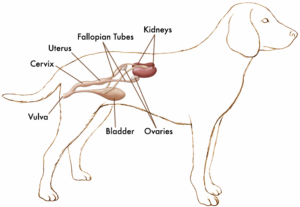Pet Health
What we believe:
All animals deserve humane medical care
The veterinary field has a wealth of new medical knowledge, treatments, and procedures, which reflects the growing importance of pets in our lives. The Parsemus Foundation believes in individualized animal care focused on lifelong health. We believe that by providing pet owners and veterinarians with education and resources, we can empower them to advocate for the best veterinary care. By supporting underutilized, low-cost, and non-surgical methods of animal sterilization and medical treatment, we work to improve the quality of life for all animals.
Our goal:
Low-cost, non-surgical options for lifelong animal health
The Parsemus Foundation’s goal is to improve animal health and welfare by supporting and advocating for innovative and neglected medical advancements. Our focus is on funding and publishing research in both controlled and field settings, pursuing press coverage of the results, and serving as an educational resource for veterinarians and the public. Many of the studies we support involve low-cost, non-surgical, or noninvasive approaches that are not under patent. The Parsemus Foundation envisions a future in which animal care involves humane procedures and treatments that support the lifelong well-being of the individual.
Pet Health Projects

Hormone-Sparing Sterilization
Hormone-sparing sterilization methods ensure population control while guarding the lifetime wellbeing of dogs.

Hormone Restoration in Dogs
Spaying or neutering sterilizes a pet by removing reproductive organs. The loss of the hormones naturally produced by those organs can create health problems, such as cancer and joint disorders. Hormone restoration therapy for dogs aims to prevent or reduce such problems.

How Spaying and Neutering Affect Health
Research on dogs has shown that the lack of natural hormones resulting from spay/neuter can lead to other serious health complications. This page provides an overview of the research on the health effects of spay or neuter.

Hormone-Sparing Sterilization Procedures
Hormone-sparing sterilization procedures — like hysterectomy (also called ovary-sparing spay) for females and vasectomy for males — are ways to sterilize pets without the negative impacts from hormone loss. This page includes details of the procedures.

Identification of Dogs Receiving Hormone Sparing Sterilization
Dogs that have received hormone-sparing sterilization may look like they’re still intact. A standard identification or marking would make it clearer that they’ve been sterilized.

Calcium Chloride Nonsurgical Neuter
A single intratesticular injection of a solution of calcium chloride dihydrate can chemically neuter male animals, providing an inexpensive, non-surgical sterilization for pets.

Shrinking Dog Tumors Nonsurgically
Calcium chloride dihydrate solution is effective at reducing mammary tumors and benign masses especially in low-resource settings or for dogs that cannot undergo surgery.

Enlarged Prostate In Dogs
Pulsed electromagnetic field (PEMF) therapy is effective at reducing the size of the prostate gland with only a few minutes of treatment each day.

Marking Street Dogs
Parsemus Foundation supports research on ways to sterilize dogs and cats without surgery and anesthesia. But the current methods of marking sterilized animals all require anesthesia.
Pet Health News

Breakthrough cat contraceptive with a single shot
For years, the only reliable way to prevent pregnancy in female cats was through surgery. But now, researchers have developed an injectable cat contraceptive. This method offers a safe, long-lasting alternative to traditional spaying and could be a game-changer in controlling the global population of feral cats.

Spreading the message about the importance of hormones to dogs
The Parsemus Foundation is an educational resource for the public and veterinarians about the importance of hormones for pets. Over the years, we have received increasing inquiries about hormone-sparing sterilization from pet parents, and seen more veterinarians offering vasectomy or hysterectomy. But the shift in practice has been slow — until now. With several influential veterinarians spreading the message about the importance of hormones to dogs, this topic has finally reached the mainstream.

Cognitive dysfunction syndrome in cats similar to Alzheimer’s disease
House cats live an average of 14 years, and it’s not uncommon for a cat to live more than 20 years. Older cats often develop cognitive decline resulting in dementia. It’s called “cognitive dysfunction syndrome” or CDS. This condition is similar in many ways to Alzheimer’s disease, including amyloid beta and tau protein accumulation. Some believe that environmental stressors from life as a house cat contribute to cognitive decline.

Noninvasive methods to evaluate canine BPH
Most intact male dogs will develop enlarged prostate glands. This condition, known as benign prostatic hyperplasia (BPH), is influenced by androgen hormones such as testosterone. BPH has few symptoms in the earlier stages of development. However, it can lead to serious health issues if left untreated, such as reproductive tract issues, constipation, and prostate infections. Researchers have outlined noninvasive methods to evaluate canine BPH in the early, subclinical, stages. Early detection allows early treatment and avoids the progression of the disease.

Additional support for delaying spay/neuter in large-breed dogs
When it comes to spaying or neutering your dog, the timing of the procedure can significantly impact their long-term health. Traditionally, veterinarians have recommended spaying or neutering before six months of age. However, recent studies, including an update to the comprehensive studies by Drs. Benjamin and Lynette Hart from the University of California, Davis, have added to growing evidence that delaying these procedures can reduce the risk of cancer and joint disorders in certain breeds. Pet owners should also consider hormone-sparing sterilization as an alternative to traditional spay/neuter.

Veterinarian raises awareness about the benefits of hormones
Veterinary advances (such as hormone-sparing sterilization) can be slow to reach caring pet owners. Fortunately, some veterinarians — like Peter Dobias, DVM — are not

Breakthrough cat contraceptive with a single shot
For years, the only reliable way to prevent pregnancy in female cats was through surgery. But now, researchers have developed an injectable cat contraceptive. This method offers a safe, long-lasting alternative to traditional spaying and could be a game-changer in controlling the global population of feral cats.

Spreading the message about the importance of hormones to dogs
The Parsemus Foundation is an educational resource for the public and veterinarians about the importance of hormones for pets. Over the years, we have received increasing inquiries about hormone-sparing sterilization from pet parents, and seen more veterinarians offering vasectomy or hysterectomy. But the shift in practice has been slow — until now. With several influential veterinarians spreading the message about the importance of hormones to dogs, this topic has finally reached the mainstream.

Cognitive dysfunction syndrome in cats similar to Alzheimer’s disease
House cats live an average of 14 years, and it’s not uncommon for a cat to live more than 20 years. Older cats often develop cognitive decline resulting in dementia. It’s called “cognitive dysfunction syndrome” or CDS. This condition is similar in many ways to Alzheimer’s disease, including amyloid beta and tau protein accumulation. Some believe that environmental stressors from life as a house cat contribute to cognitive decline.

Noninvasive methods to evaluate canine BPH
Most intact male dogs will develop enlarged prostate glands. This condition, known as benign prostatic hyperplasia (BPH), is influenced by androgen hormones such as testosterone. BPH has few symptoms in the earlier stages of development. However, it can lead to serious health issues if left untreated, such as reproductive tract issues, constipation, and prostate infections. Researchers have outlined noninvasive methods to evaluate canine BPH in the early, subclinical, stages. Early detection allows early treatment and avoids the progression of the disease.


